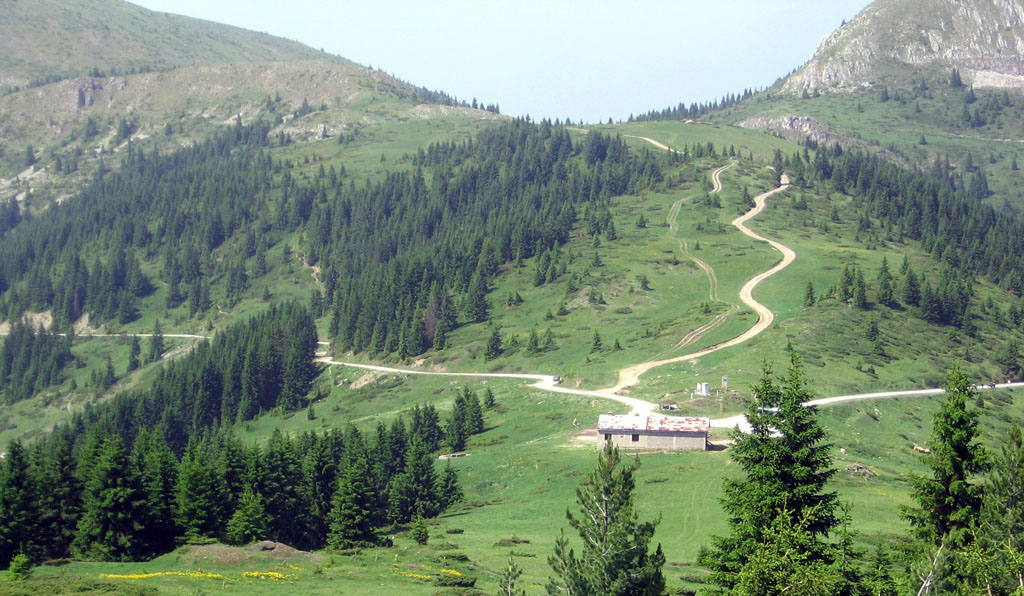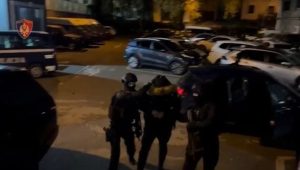04.07.2021 – 11:05
It has been three years since the ratification of the Demarcation Agreement with Montenegro in the Assembly of Kosovo and yet this process can not be considered complete.
According to this agreement signed in 2015 in Vienna, after ratification, both countries will review the border line and corrections will be made if there have been any omissions.
The Prime Minister of Kosovo, Albin Kurti, who was opposed to this agreement, has not yet formed a state commission for demarcation of the border.
Last year, on August 26, while in opposition, Kurti criticized the agreement, which he said lost 8,200 hectares to Kosovo.
“The report and the work of the Bulliqi Commission is an indictment for the old regime (as soon as the State Prosecutor’s Office is released) and an orientation for correction (as soon as good government is restored),” Kurti wrote on Facebook.
However, as prime minister in his second term, Kurti has not done anything regarding this process.
In the Government of Kosovo, they did not answer the questions of Radio Free Europe and did not indicate when the new commission will be formed to deal with the issue of reviewing the border line, as provided in the agreement.
The request to form this commission was addressed to the Prime Minister by the President of the Alliance for the Future of Kosovo (AAK), Ramush Haradinaj.
On his first day as prime minister in 2017, Ramush Haradinaj dismissed the commission headed by Murat Meha and appointed a new commission composed of professors Florim Isufi and Shpëtim Bulliqi.
Now as an opposition MP, Haradinaj asked on June 25 from the Prime Minister of Kosovo, Albin Kurti, to form as soon as possible the State Commission for demarcation of the border.
“It is the first action that you must take, in order not to leave a vacuum, so that the government is not in surprise of any nature, this commission must be functional. In the working procedure, the Kosovo and Montenegrin commissions did not come out to remove the stones. The stones between Kosovo and Montenegro have not been thrown yet. The border that is today is the border that we found even before the agreement “, said the president of the Alliance for the Future of Kosovo (AAK).
According to him, if Montenegro does not express readiness to move in this direction, this issue should go to arbitration.
The agreement with Montenegro was signed according to the findings of the State Commission for the demarcation of the border line, led by Murat Meha.
“I can not say anything, because what I had to say I said. “What we have said has been confirmed and with that we have completed that work”, said Meha in February for Radio Free Europe.
Isufi: Everything in the hands of Montenegro
Professor Florim Isufi, who was part of the State Commission appointed by former Prime Minister Ramush Haradinaj and fired by former Prime Minister Avdullah Hoti, says that only with the good will of Montenegro can there be a review of this line. demarcation.
“No one can talk to Montenegro anymore if it should be based on the report of findings, because there are findings that need to be improved, and the Montenegrin side if it does not accept, it is difficult to improve. The boundary line cannot be defined or marked unless the two parties agree. This remains a dead end in the future until the commissions are created “, says Isufi.
He tells Radio Free Europe that the Prime Minister of Kosovo, Albin Kurti, should meet and talk with the Montenegrin authorities.
What do residents in the border area say?
Every year, Rasim Mulaj and his wife stay for three months in their tent in the mountains near the border with Montenegro.
Mulaj is from the village of Llukë e Epërme in the Municipality of Deçan, who together with other residents of this area, opposed the Demarcation Agreement with Montenegro, signed in 2015.
He says that these residents have been treated unfairly.
“Fifteen villages have left us without mountains”, says Mulaj in a conversation with Radio Free Europe, adding that as a result of the agreement signed between the two countries, the border line is now about five kilometers deep in Kosovo.
According to him, Montenegro has never controlled this part and that the Zhlebi Tower, says Mulaj, has never been part of Montenegro.
“They control it, they have placed nets on the upper side so that the stones do not slip, they have made new visas, they are clearing the road. “Everything means that they (Montenegrins) control it, the forester is from Rozaje, he controls the mountain”, says Mulaj.
When three years have passed since the ratification of this agreement in the Assembly of Kosovo, Kosovo has had four governments.
None of the governments has taken any steps regarding the review of the border line, to make the necessary corrections if there have been any omissions.
I expect from these (Government of Kosovo), because they have been insisting that the demarcation not be voted. “I expect them and the Ministry of Foreign Affairs to deal with this matter, to talk to Montenegro”, says Mulaj.
Ratification under tear gas smoke
From 2015 to 2018, Lëvizja Vetëvendosje as an opposition party, but also other opposition parties, strongly opposed the Demarcation Agreement with Montenegro.
Numerous protests were organized against this agreement, both in the squares and in the assembly hall.
Under the smoke of tear gas, on March 21, 2018, the deputies of the Assembly of Kosovo voted for the ratification of the Demarcation Agreement with Montenegro, which was considered as a criterion for visa liberalization for the citizens of Kosovo.
The demarcation agreement with Montenegro, signed in 2015 in Vienna, Austria, was supplemented by an annex to the agreement between the two former presidents, Kosovo’s Hashim Thaçi and Montenegro’s Filip Vujanovi..
In the agreement signed between the two presidents, it is stated that after the ratification of the demarcation in the Assembly of Kosovo, both countries will review the border line and corrections will be made if there have been omissions./REL




